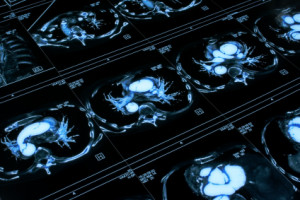The old adage is that the canary ate the cat or was that vice versa? This blog is about a very special kind of canary, and it has nothing to do with birds, wings or cats. This canary has all capital letters CANARY, and it is a computer-aided software tool, recently created by scientists at the Mayo Clinic.
 CANARY can actually non-invasively “characterize pulmonary adenocarcinoma, a common type of cancerous nodule in the lungs.” According to recent reports in the Journal of Thoracic Oncology, the CANARY’s job is described by the letters in its name, Computer Aided Nodule Assessment and Risk Yield (CANARY).
CANARY can actually non-invasively “characterize pulmonary adenocarcinoma, a common type of cancerous nodule in the lungs.” According to recent reports in the Journal of Thoracic Oncology, the CANARY’s job is described by the letters in its name, Computer Aided Nodule Assessment and Risk Yield (CANARY).
Pulmonary adenocarcinoma is quite a common type of lung cancer, and it is known that it can be detected with traditional computed tomography (CT) scans. Early detection always results in a more encouraging prognosis.
Tobias Peikert, M.D., a Mayo Clinic pulmonologist states, “However, a subgroup of the detected adenocarcinomas identified by CT may grow very slowly and may be treatable with less extensive surgery.”
Enter, the CANARY software! It has the unique ability to classify the risk lung adenocarcinomas pose to the patient “by characterizing the nodule as aggressive or indolent.” It stratifies the nodules according to scales of :
1. High-sensitivity,
2. Specificity and
3. Predictive values.
How does it work?
 First, This savvy software utilizes information gleaned from the existing high-resolution diagnostic or screening CT images of pulmonary adenocarcinomas. Then, it actually matches each and every single pixel of the lung nodule to one of “nine unique radiological exemplars.”
First, This savvy software utilizes information gleaned from the existing high-resolution diagnostic or screening CT images of pulmonary adenocarcinomas. Then, it actually matches each and every single pixel of the lung nodule to one of “nine unique radiological exemplars.”
How did they prove it worked?
Lung pathologists tested the results created by CANARY against the microscopic analysis of actual surgically removed lesions. The results of the computer correlated with the results of the Scalpel. This is very good news for Lung patients everywhere.
Do you know that lung cancer is the leading cause of cancer-related deaths in the United States?
“Without effective screening, most lung cancer patients present with advanced stage disease, which has been associated with poor outcomes,” Dr. Peikert explained.
It is true that CT lung cancer screening has been shown to improve patient survival, but it is also true that any sort of nationwide screening program would be would have two huge drawbacks: It would be crushingly expensive and it could cause the high risk of over-treating patients whose tumors were slow growing.
CANARY will bring lung doctors everywhere a brand new weapon in their arsenal to fight cancer, save their patients, and defeat the high cost of diagnosis. This is a great example of today’s unity in research, technology and patient care.
Special Note: To discover more about lung cancer, the Florida Lung, Asthma & Sleep Specialists invite you to click on a previous blog on the subject.

